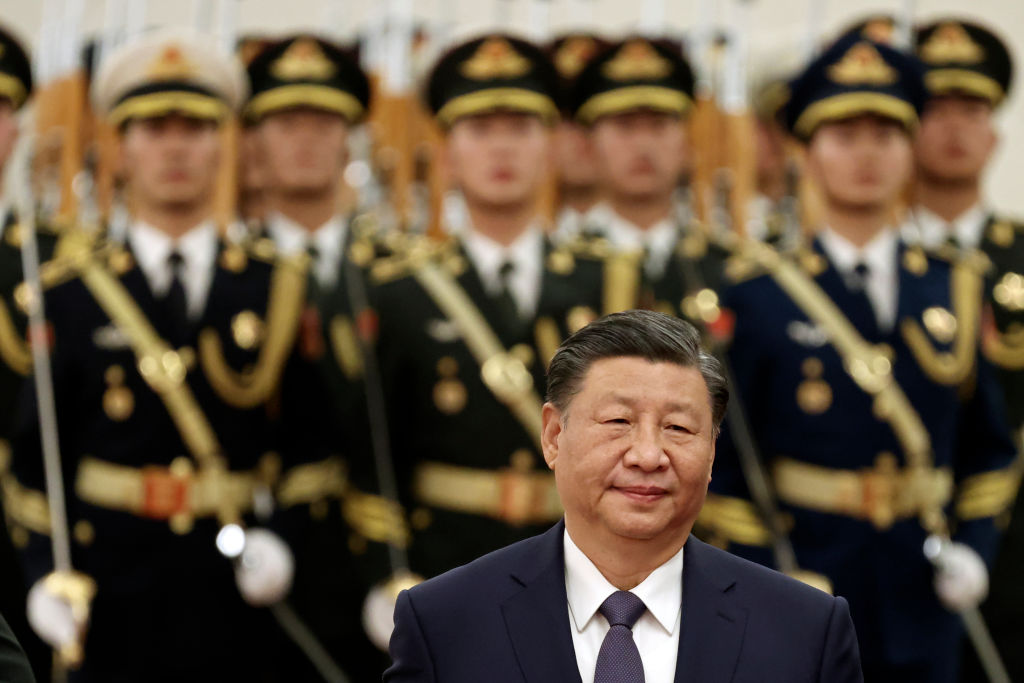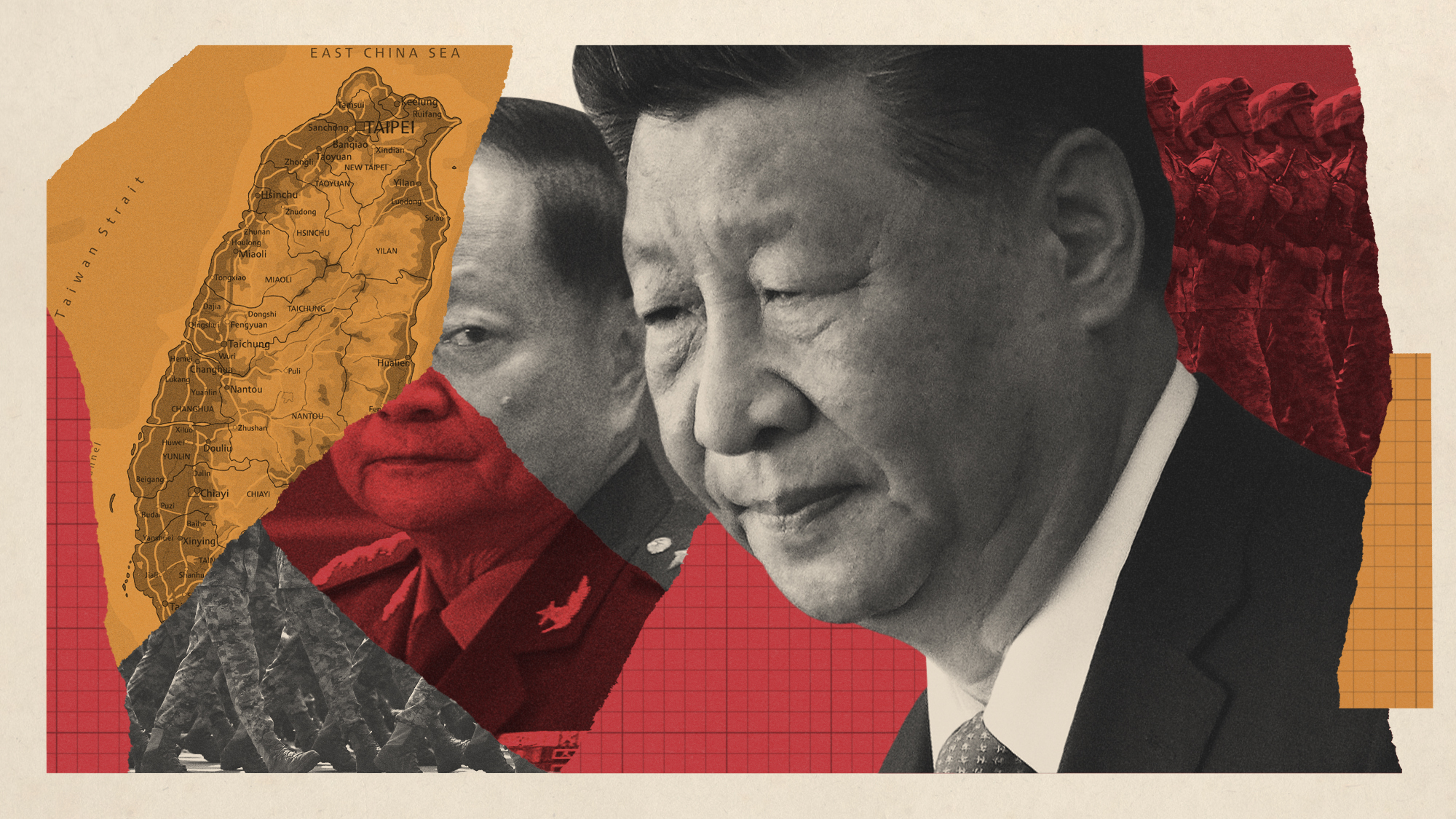Inside Xi's purge of China's military leadership
The country has pumped billions into defense. Did that create opportunities for corruption?


A free daily email with the biggest news stories of the day – and the best features from TheWeek.com
You are now subscribed
Your newsletter sign-up was successful
China is turning its military leadership upside down.
Axios reported that leader Xi Jinping is purging the country's defense establishment, "risking instability and a crisis of confidence during a sensitive time in China's foreign relations." Nine generals — mostly those who oversee the country's Rocket Force missile program — were among those removed from a Communist Party advisory committee last week. The firings "are the latest in a series targeting top-level defense officials in China."
What's going on? Maybe it's a good old-fashioned grift. Xi's purge is "exposing deep-rooted corruption that could take more time to fix," Reuters reported. No explanation was offered for the generals' removals, but China has "pumped billions into buying and developing" its military in recent years — and now there are questions "over whether there has been adequate oversight over these massive military investments" That suspected corruption may be widespread within the senior ranks of the military. "It seems to have involved several senior men rather than one 'bad apple,'" said one analyst.
The Week
Escape your echo chamber. Get the facts behind the news, plus analysis from multiple perspectives.

Sign up for The Week's Free Newsletters
From our morning news briefing to a weekly Good News Newsletter, get the best of The Week delivered directly to your inbox.
From our morning news briefing to a weekly Good News Newsletter, get the best of The Week delivered directly to your inbox.
The instability could undermine China's readiness for war at a time of rising tensions with the United States. "I think there may be a great deal of corruption in the Chinese defense industry," Tamkang University's Lin Ying-yu told Voice of America, "and inevitably, it will have an impact on the People's Liberation Army's combat effectiveness."
Like Mao? Or Stalin?
There's a bigger picture here. Xi's anti-corruption drive is reminiscent of Mao Zedong's "continuous revolution," Chun Han Won argued at The Wall Street Journal. Since taking power in 2012, China's leader has conducted an "unrelenting campaign" that has punished "scores of senior officials, bankers, hospital directors and even soccer administrators" in business, sports and government agencies. "Battling corruption is the most thorough form of self-revolution," Xi said in 2022. But the purges also serve to "enforce fealty, through fear, to himself and his vision."
But there's something different about the latest round of "Stalin-like" purges, Politico reported. Earlier anti-corruption drives were aimed at "hostile political factions." The more recent actions target "loyalists from the inner ring of Xi's own clique, leading to serious questions over the regime's stability." The result? There is a "feverish paranoia permeating Beijing."
One beneficiary: Former Admiral Dong Jun, who once ran China's Navy, has been appointed the country's new defense minister — an announcement that comes months after his predecessor, Li Shangfu, was removed from office after disappearing from public view for two months. CNN reported that the post is "largely ceremonial" but that Don's appointment "could facilitate the ongoing restoration of high-level defense dialogue between the U.S. and China."
A free daily email with the biggest news stories of the day – and the best features from TheWeek.com
Rising tensions
All of this comes amid concerns that the United States and China are moving closer to war in the Pacific. Xi and President Joe Biden seemed to take a step back from the brink at their November summit in San Francisco, Michael T. Klare noted at The Nation. Fundamental challenges remain, however: CNBC noted that during his New Year's address, Xi announced that China's reunification with Taiwan is "inevitable" — striking a stronger tone on the topic than he had a year earlier. "His words were full of confrontational thinking," a Taiwanese spokesperson said.
The question is whether China is ready for that confrontation. The latest purge suggests perhaps not. "It will take some time for China to clean up the mess and restore confidence in the Rocket Force's competence and trustworthiness," the Stimson Center's Yun Sun told Reuters. "It means for the time being, China is at a weaker spot."
Joel Mathis is a writer with 30 years of newspaper and online journalism experience. His work also regularly appears in National Geographic and The Kansas City Star. His awards include best online commentary at the Online News Association and (twice) at the City and Regional Magazine Association.
-
 Will increasing tensions with Iran boil over into war?
Will increasing tensions with Iran boil over into war?Today’s Big Question President Donald Trump has recently been threatening the country
-
 Corruption: The spy sheikh and the president
Corruption: The spy sheikh and the presidentFeature Trump is at the center of another scandal
-
 Putin’s shadow war
Putin’s shadow warFeature The Kremlin is waging a campaign of sabotage and subversion against Ukraine’s allies in the West
-
 The UK expands its Hong Kong visa scheme
The UK expands its Hong Kong visa schemeThe Explainer Around 26,000 additional arrivals expected in the UK as government widens eligibility in response to crackdown on rights in former colony
-
 ‘Hong Kong is stable because it has been muzzled’
‘Hong Kong is stable because it has been muzzled’Instant Opinion Opinion, comment and editorials of the day
-
 Big-time money squabbles: the conflict over California’s proposed billionaire tax
Big-time money squabbles: the conflict over California’s proposed billionaire taxTalking Points Californians worth more than $1.1 billion would pay a one-time 5% tax
-
 What do Xi’s military purges mean for Taiwan?
What do Xi’s military purges mean for Taiwan?Today’s Big Question Analysts say China’s leader is still focused on reunification
-
 Did Alex Pretti’s killing open a GOP rift on guns?
Did Alex Pretti’s killing open a GOP rift on guns?Talking Points Second Amendment groups push back on the White House narrative
-
 What is at stake for Starmer in China?
What is at stake for Starmer in China?Today’s Big Question The British PM will have to ‘play it tough’ to achieve ‘substantive’ outcomes, while China looks to draw Britain away from US influence
-
 ‘It’s good for the animals, their humans — and the veterinarians themselves’
‘It’s good for the animals, their humans — and the veterinarians themselves’Instant Opinion Opinion, comment and editorials of the day
-
 Washington grapples with ICE’s growing footprint — and future
Washington grapples with ICE’s growing footprint — and futureTALKING POINTS The deadly provocations of federal officers in Minnesota have put ICE back in the national spotlight
